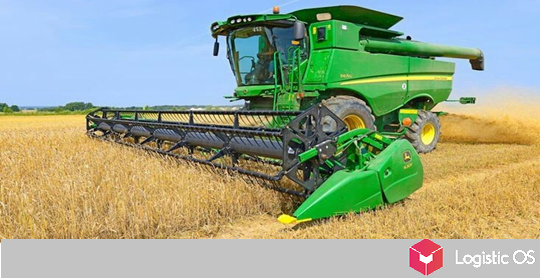Currently, the idea of creating such an exchange is already moving into the implementation stage — Vladimir Putin approved the initiative.
The idea of creating an independent platform where companies from the BRICS countries could buy and sell grain received support from the business communities of the participating countries. This was announced by the Chairman of the Board of the Union of Grain Exporters Eduard Zernina.
According to him, at this stage it will be necessary to select the country that will register the exchange, as well as the trading currency.
At the same time, Russia has experience in creating such platforms; the Moscow Exchange can be cited as an example.
Currently, the BRICS countries account for almost half of all world grain production, as well as its consumption.
For example, in 2023, the BRICS countries produced 1.17 billion tons of grain and consumed 1.1 billion (this is 42% and 40%, respectively).
However, BRICS has expanded this year, adding a significant number of new member countries. Taking this into account, it is planned that grain production by the BRICS countries will reach 1.24 billion tons per year, which is 44% of the world, and consumption — 1.23 billion, which is 44% of the world.
The situation is similar with individual cultures. The BRICS countries produce and consume 47% of wheat and 40% of corn. Therefore, creating a platform for grain trading is a very relevant idea.
Experts note that modern grain trade in the world mainly uses the infrastructure that developed after the Second World War.
Then the main supplier of food to world markets was the United States; as a result, the main platform is still the Chicago Stock Exchange, and the main currency is the dollar. Pricing also takes place there, on Western sites.
But significant geopolitical shifts are taking place in the world, and this situation can no longer be considered adequate, experts believe. Therefore, the emergence of an alternative platform for grain trading can be a very timely solution.
This will allow the BRICS countries to fully influence the prices of grain crops traded on the exchange, as well as avoid possible price manipulation by Western countries.
At the same time, the emergence of such a platform requires great effort and resources.
For example, it will be necessary to create a unified trade and clearing infrastructure, organize access to it for participants from different countries, and establish settlements in the currencies of the BRICS countries.
Taking this into account, the full implementation of the idea may require quite a lot of time.
However, it is unlikely to find reasons to completely abandon the creation of a BRICS grain exchange, so sooner or later such a platform will certainly appear, analysts say.

